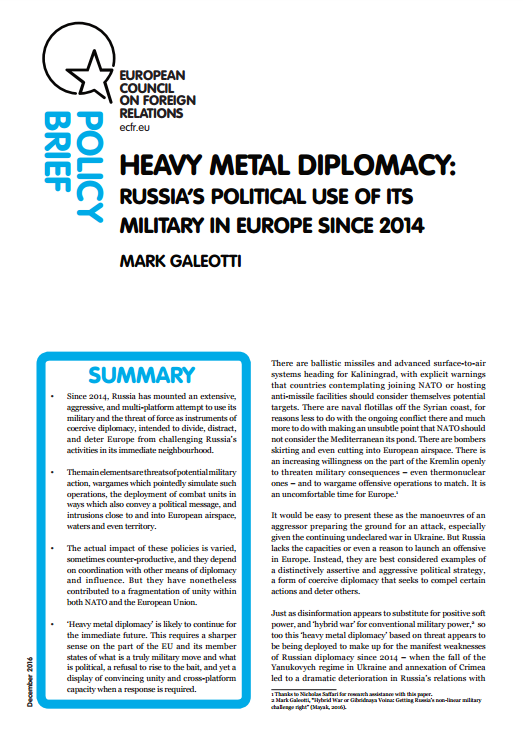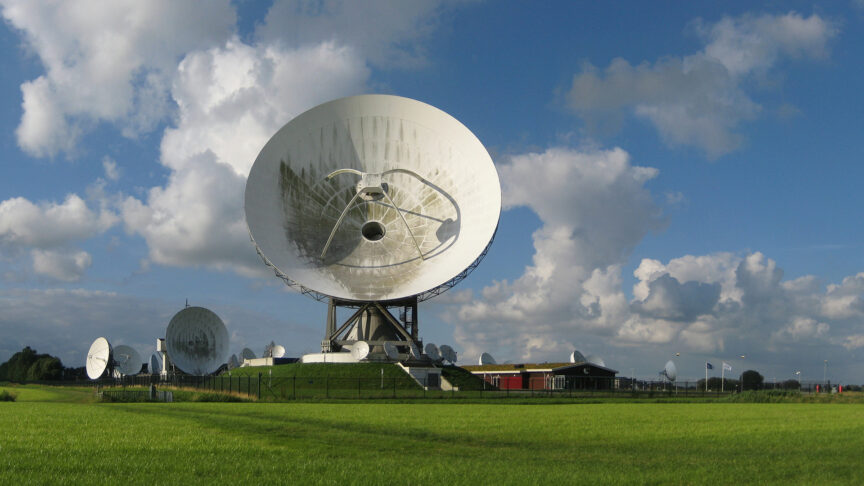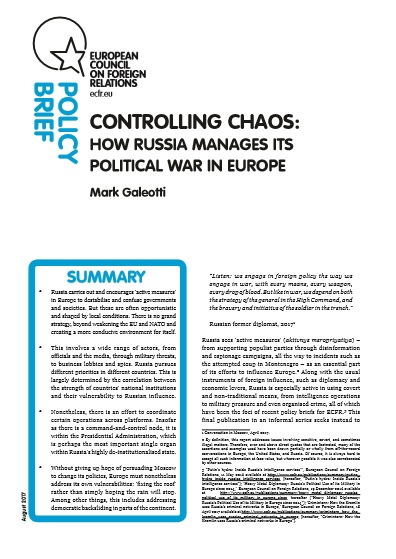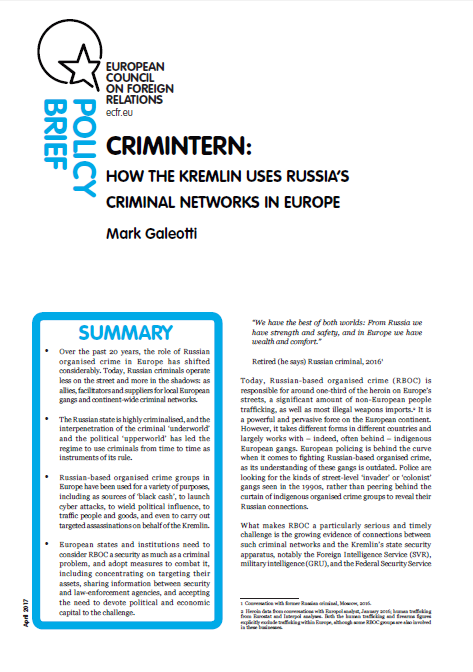
Heavy Metal Diplomacy: Russia’s Political Use of its Military in Europe since 2014
How the Kremlin uses its military as an instrument of coercive diplomacy

ECFR Alumni · Former Visiting Fellow
Russian security, Russian politics, Organised and transnational crime, Intelligence
English, Italian, Russian, French
Dr Mark Galeotti used to work for ECFR as Visiting Fellow until 2018.

How the Kremlin uses its military as an instrument of coercive diplomacy
Rather than trying to duplicate NATO, the EU should instead focus on 'hybrid defence'
Russia's brutality in Aleppo reflects Moscow’s perspective on warfighting, its military capabilities, and its sense of threat.
If true, this would be a serious shift in policy, reflecting a dawning awareness on Putin’s part that his old strategies for governing Russia are looking increasingly ineffective.
At a time when Russia is heading into renewed turbulence, he appears determined to ensure he has none around him willing to express uncomfortable truths
Vladimir is not Nicholas, and the 2010s are not the 1850s. Nonetheless, if Putinism is entering its “Nicolaevian” phase, it raises some worrying implications for the future.
Drug taking in sport can be seen as a metaphor for the country’s ills: denial, bluster and blame providing a recipe for isolation and stagnation
Trump’s businessman’s approach to foreign policy promises stability to no one
For Moscow, Russian-based criminal networks provide an unconventional asset in the geopolitical struggle with the West
Today’s news risks making this system even more dysfunctional, politicised, untethered from reality, consumed by factionalism – and thus more dangerous for both Putin and Europe

The EU should offer Georgia, Moldova, and Ukraine a new intelligence and security compact to help strengthen their security against Russia
Introduction “Serbia and the rest of the Balkans are a pawn in a great game of powers between Russia, the EU, and the US.”…

Insofar as there is a command-and-control node, it is within the Presidential Administration

European states and institutions have to consider the challenges posed by Russian-based organised crime, and adopt measures to combat it

How the Kremlin uses its military as an instrument of coercive diplomacy

Far from being an all-powerful “spookocracy” that controls the Kremlin, Russia’s intelligence services are internally divided
Russia is being weaponised to justify big-ticket buys for the UK military, yet there’s little talk of what Moscow thinks matters
Those who argue that reform must take second place to military victory are in effect cheerleading for the kleptocrats
If sanctions are considered not to be working, then the answer is not to lift them, but to strengthen them
Contrary to recent claims, Russia's defence budget has not been slashed for 2017.
The long-distance bromance may founder when its principals actually get to meet.
Mark Galeotti's op-ed on how Russia aims to divide, distract, dismay and dominate neighbours with 'heavy metal diplomacy'
Rather than trying to duplicate NATO, the EU should instead focus on 'hybrid defence'
Russia's brutality in Aleppo reflects Moscow’s perspective on warfighting, its military capabilities, and its sense of threat.
If true, this would be a serious shift in policy, reflecting a dawning awareness on Putin’s part that his old strategies for governing Russia are looking increasingly ineffective.
At a time when Russia is heading into renewed turbulence, he appears determined to ensure he has none around him willing to express uncomfortable truths